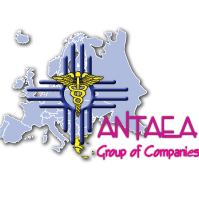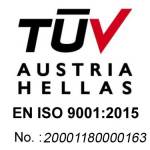
ANTAEA Code of Business Conduct
ANTAEA is committed to do its business lawfully worldwide, irrespective of national boundaries or cultural diversity. Legality is one of the fundamental values of the company, and of utmost importance for ANTAEA Owners and Management. We expect all personnel to follow the principle of strict compliance with all legal requirements. Violations of the law are not tolerated in our company. This applies without exception.ANTAEA Code of Business Conduct provides a guide to ANTAEA personnel to do business both lawfully and ethically.
The Code includes the following principles:
- Lawful conduct
- Responsibility for ANTAEA reputation
- Conduct towards personnel
- Avoiding conflicts of interest
- Engaging business partners for private purposes
- Proper use of ANTAEA facilities and assets
- Dealing with information
- Company documents and records
- Confidentiality
- Data protection and information security
- Insider information
- Conduct towards business partners and third parties
- Competition
- Relationships with suppliers and customers
- Bribery, corruption, inducement
- Donations
- Product quality and safety
- Occupational health and safety, fire and environmental protection
- Information and Training
- Reporting irregularities
- Quality Control
Preamble
Unconditional compliance with all legal requirements has always been imperative for ANTAEA, and is an integral part of our values. Numerous guidelines and directives govern how the associated obligations are to be observed. To facilitate personnel compliance with these obligations, their essence has been summarized in this Code of Business Conduct. It governs the relationship between the companies and departments of the ANTAEA Group and its personnel. It is not intended to create contractual rights for third parties.
-
Lawful conduct
We respect the principle of strict legality in all acts, measures, contracts, and other transactionsof the ANTAEA Group; this also applies to the payment of taxes due, obtaining necessaryofficial permits, and observing thirdpartyrights. We support this principle not onlyin view of the considerable business damagethat can arise from violations – through prosecution, fines, or compensation claims – butabove all because we endorse the principle ofunconditional compliance with the law.
Everyone at ANTAEA is personally responsible to comply with law in his/her field of work. It is strictly forbidden to induce third parties tocommit, knowingly to collaborate in, or to coverup unlawful acts. Irrespective of any sanctionsprovided by law, actions contrary to this ruleshall lead to disciplinary action.
Managers are responsible to ensure that no violations of the law and ANTAEA Code of Business Conduct occur in their area of responsibilitywhich could have been prevented or impeded byappropriate supervision. Managers must makeclear that violations of the law are prohibitedand will lead to disciplinary action, irrespectiveof personnel position in the company. In thisconnection, managers shall expressly draw personnel attention to the provisions containedin this Code of Business Conduct.
a. Responsibility for ANTAEA Reputation
ANTAEA reputation should be protected; all personnel must pay due regard to the reputation of the ANTAEA Group while performing their duties.
b. Conduct toward Personnel
We respect the personal dignity of every individual and therefore do not tolerate unlawful discrimination or harassment of our personnel. We do not use child labor, and do not approve the use of child labor by our business partners.
-
Avoiding Conflicts of Interest
Secondary employment is allowed only upon prior consent granted by the CEO. Furthermore, personnel must not engage in side-line activities for or invest in companies that are competitors, suppliers, or customers of ANTAEA unless they obtain the prior written approval of the CEO. This rule does not apply if the employee’s shareholding is less than 10 percent. If an employee, his/her spouse or partner, or a close family member holds an interest or serves in a senior position in another company and is in a position to influence the business relationship between ANTAEA and that company, there is a potential conflict of interest. In such cases, transactions with that company must not be conducted without the prior written approval of the CEO.
a. Engaging business partners for private purposes
If a person’s work entails direct involvement in the awarding or settlement of orders, and there is consequently a potential conflict of interest, he/she must obtain the prior written approval of the CEO before engaging the services of ANTAEA business partner for private purposes. This provision does not apply to goods and services generally available.
b. Proper use of ANTAEA facilities and assets
ANTAEA facilities and assets should be used for business purposes only. Personnel misusing ANTAEA facilities or assets for unauthorized activities shall be subject to disciplinary action.
-
Dealing with information
a. Written Documents and Records
All records and reports, whether internal or external, must be accurate and truthful. The accounting principles of the ANTAEA Group shall be observed; these require that data and other records be entirely correct, timely, and compatible with the relevant systems at all times. Confidential information of the company may only be used as the basis for the creation of records, files, and documents if their creation immediately serves the interests of ANTAEA.
b. Confidentiality
Confidential information of the company must not be disclosed to third parties. The obligation to maintain secrecy shall remain effective even after termination of employment.
c. Data Protection and Information Security
In all business processes and in compliance with the applicable statutory requirements, privacy must be maintained when personal data are used, and the security of all business data must be ensured. Technical security measures to prevent unauthorized access must comply with an appropriate standard implemented at ANTAEA.
d. Insider Information
Insider information is any non-public information which a business partner or client would consider important to make business decisions. It is forbidden to coerce or unduly influence ANTAEA clients or business partners on the basis of insider information. Insider information shall be treated in strict confidence. It must never be disclosed to third parties; this also applies to the disclosure of passwords allowing access to insider information held electronically. Insider information may only be disclosed to employees or external consultants on need-to-know basis, i.e. the recipients require the information in order to perform their work, and have undertaken to treat the information in strict confidence.
-
Conduct towards business partners and third parties
a. Competition
All personnel have a duty to observe the rules of fair competition as defined by applicable law. In general, competitors are not permitted to exchange information or reach agreements on allocation of territories or customers, prices or components of prices, supply relationships or the conditions governing them, service capacities, or the terms and conditions of offers. This also applies to the exchange of information concerning market strategies and investment strategies. Written or oral agreements to this effect are prohibited. In addition, an illegalagreement can be inferred from similar conduct or patterns of behavior. Cooperation in or the exchange of information regarding research and development projects is only allowed in specific exceptional cases. ANTAEA market position must not be exploited in violation of the relevant laws to engage in price discrimination, the supply of unsolicited products, or the refusal to do business.
b. Relationships with suppliers and customers
Agreements with customers and suppliers shall becomplete, unambiguous, and documented, includingany subsequent changes and amendments. Thisshall also apply to arrangements such as bonuspayments or cost subsidies for advertising andbusiness promotion. All personnel must complystrictly with the internal regulations governing theapplication of the principle of dual control and thesegregation of executive and control functions.Suppliers shall be selected solely on competitivemerit, based on a comparison of the price,quality, performance, and suitability of theproducts or services offered.
c. Bribery, corruption, inducement
Agreements or supplements to agreementsreferring to the acceptance of bribes or preferentialtreatment in connection with the brokering,award, delivery, settlement, or payment oforders are prohibited.Personnel who allow customers or suppliers to influence them unfairly, or themselves seek
to influence customers or suppliers unfairly will– irrespective of any consequences undercriminal law – be subject to disciplinary action.The CEO must be notified of any attempts by suppliers or customersto influence unfairly the decisions of ANTAEA personnel;depending on the individual case,appropriate action shall be taken, including termination of the contract.
Commission and remuneration paid to authorizedconsultants, agents, or advisors must bereasonable and proportionate to those persons’work. It is forbidden to agree to any benefits if itcan be assumed that provision of such benefitsis, in whole or in part, intended as abribe. Agents or other intermediaries engaged byANTAEA in order to acquire orders or permits mustenter into a contractual obligation not to offer orreceive bribes. Respective contracts shall includea clause providing for the right of terminationwithout notice in cases of bribery or corruption.
Extreme caution shall be exercised whenaccepting and offering gifts and other benefits(such as attending events without any directbusiness relevance), including invitations (fromand to suppliers or customers). Their financialscope must be such that it does not require therecipient to conceal acceptance, or make therecipient feel indebted. In case of doubt, theprior written approval of the CEO shall be obtained.
d. Donations
ANTAEA express its social responsibility andcommitment to civic society by making cashand non-cash donations to educational, scientific, cultural, and social causes. The rulesgoverning the award of such donations areestablished exclusively by the CEO. Theaward of such donations must not be motivated by self-interest and shall be clearlydistinguished from sponsorship.
-
Product quality and safety
The statement “Quality isour most valued asset,” remains at the core ofour business policy. We seek to satisfy ourcustomers’ high quality and safety standards,despite the ever-increasing complexity ofprojects. Should quality issues arise, despite makingefforts to avoid them, we take action to eliminatethem in compliance with statutory provisionsand contractual obligations.
-
Occupational health and safety, fire and environmental protection
All personnel shall endeavor to keep ourassets and workplace safe, to minimize theadverse environmental impact of our operations,and to conserve resources. Processes,facilities, and operating resources mustcomply with the applicable statutory andinternal provisions governing occupationalhealth and safety, as well as fire and environmentalprotection.
-
Information and Training
Current issues related to this Code of BusinessConduct shall be brought to the attention ofANTAEA personnel at regular intervals. Trainingcourses for personnel shall be regularly offered as applicable to job descriptions.
-
Reporting irregularities
All personnel have the right to draw theirmanager’s attention to circumstances thatappear to indicate a violation of the Code of Business Conduct. This notification may alsobe made anonymously. Reports shall beinvestigated and, where appropriate, remedialand enforcement action shall be taken. A person reporting in good will should not be subject to discrimination or retaliation.
-
Quality Control
Each department is responsible to complywith the provisions of this Code of BusinessConduct, as well as with other internalregulations within its area of responsibility.Quality Assurance Departmenthas an unrestricted right to receive informationand to conduct internal audits, unless legal stipulationsor works agreements require otherwise.
John ROUSSOS, BSc, MSc MedPhys
![]()





